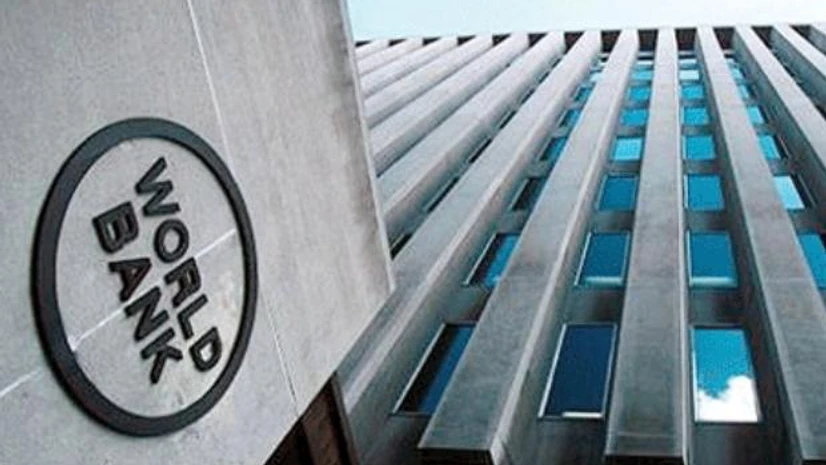India's economy is estimated to contract by 9.6 per cent in the fiscal year 2020-21, reflecting a sharp drop in household spending and private investment, and the growth is expected to recover to 5.4 per cent in 2021, the World Bank said on Tuesday.
In its Global Economic Prospects report, the World Bank said that the informal sector, which accounts for four-fifths of employment, has been subject to severe income losses during the Covid-19 pandemic.
"In India, the pandemic hit the economy at a time when growth was already decelerating. The output is estimated to contract by 9.6 per cent in Fiscal Year 2020/21, reflecting a sharp drop in household spending and private investment, it said.
"In India, growth is expected to recover to 5.4 per cent in 2021, as the rebound from a low base is offset by muted private investment growth given financial sector weaknesses, the bank said.
The informal sector, which accounts for four-fifths of employment, has also been subject to severe income losses during the pandemic. Recent high-frequency data indicate that the services and manufacturing recovery are gaining momentum, the report said.
Also Read
"In the financial sector, non-performing loans were already high before the pandemic," it said.
In Pakistan, the recovery is expected to be subdued, with growth at 0.5 per cent in fiscal 2020/21. Growth is projected to be held back by continued fiscal consolidation pressures and service sector weakness, it said.
In the rest of South Asia, the economic impact of COVID-19 has been somewhat less severe but still significant. Economies that depend heavily on tourism and travel have been especially hard hit. That includes the Maldives, Nepal, and Sri Lanka, the report said.
"Regional economic activity is estimated to have contracted by 6.7 per cent in 2020, led by a deep recession in India, where the economy was already weakened before the pandemic by stress in non-bank financial corporations," the World Bank said.
In Bangladesh, which had been one of the fastest-growing emerging markets and developing economies prior to the pandemic, growth is estimated to have decelerated to two per cent in FY2019/20.
In Pakistan, growth is estimated to have contracted by 1.5 per cent in FY2019/20, reflecting the effects of localised COVID-19 containment measures as well as the impact of monetary and fiscal tightening prior to the outbreak, the bank said.
South Asia is projected to grow by 3.3 per cent in 2021.
"Weak growth prospects reflect a protracted recovery in incomes and employment, especially in the services sector, limited credit provisioning constrained by financial sector vulnerabilities, and muted fiscal policy support," it said.
The forecast assumes that a vaccine will be distributed on a large scale in the region starting the second half of 2021 and that there is no widespread resurgence in infections, it added.
(Only the headline and picture of this report may have been reworked by the Business Standard staff; the rest of the content is auto-generated from a syndicated feed.)

)
